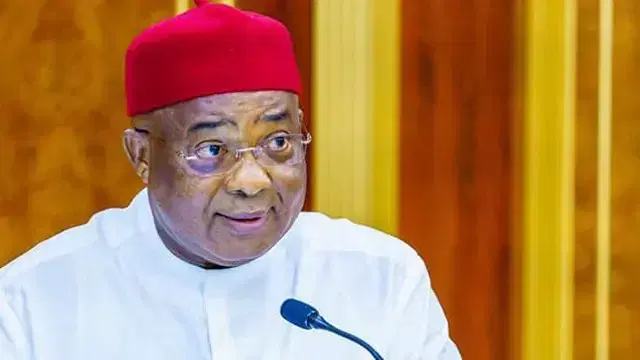The petition submitted by Labour Party (LP) candidate Abiodun Dabiri against Senator Wasiu Eshinlokun-Sanni, the election’s victor, was rejected by the National and State House of Assembly Election Tribunal, which is based in Lagos.
In a unanimous decision, the Tribunal dismissed the petition on the grounds that it was incompetent and the question it addressed was one of pre-election affairs. Justice Ashua Ewah gave the verdict.
Abdulahi Ozegya and Mohammed Sambo, both judges, are additional tribunal members.
The petition’s respondents are the All Progressives Congress (APC), Eshinlokun-Sanni, and Independent National Electoral Commission (INEC).
LP and Dabiri are the petition’s signatories.
The petitioners sought the Tribunal to declare the Lagos Central Senatorial District election held on Saturday, February 25, 2023, invalid due to a failure to comply with the Electoral Act’s requirements in their petition, which was submitted through their attorney, Ikechukwu Nwana.
They asserted that the election was invalidated by the first respondent’s (INEC) failure to include the symbol adopted by the second petitioner, LP, or other information pertaining to the second petitioner on the ballot papers utilized to carry out the said election.
The second respondent, Eshinlokun, however, filed two preliminary objections during the pre-trial hearing through his attorney, Wahab Shittu (SAN), asking for a ruling to have the petitioner’s reply, which was filed on May 12 and dated as of May 13, 2023, struck out.
Due to the first petitioner’s lack of participation in the Lagos Central Senatorial District election, which was held on February 25, 2023, the respondent based his arguments in support of his petitions on the claim that the petitioner lacked locus standi to bring it.
In addition, Shittu claimed that the initial petitioner was not authorized to file the petition because they had disregarded Section 133(1)(a) of the Electoral Act 2022.
The petition’s basis is the sponsorship and nomination of candidates, which is outside the purview of the Electoral Act of 2022 and is therefore unconstitutional.
“The basis for the second application, dated May 18, 2023, is that the petitioner’s reply was an attempt to expand the case. in violation of clauses 14 (2)(a) and 16 (1)(a) of the First Schedule to the Electoral Act of 2022.
The learned silk contended that Petitioners are not permitted to enlarge or amend their Petition by using their Reply in violation of Paragraph 16(1(a).




